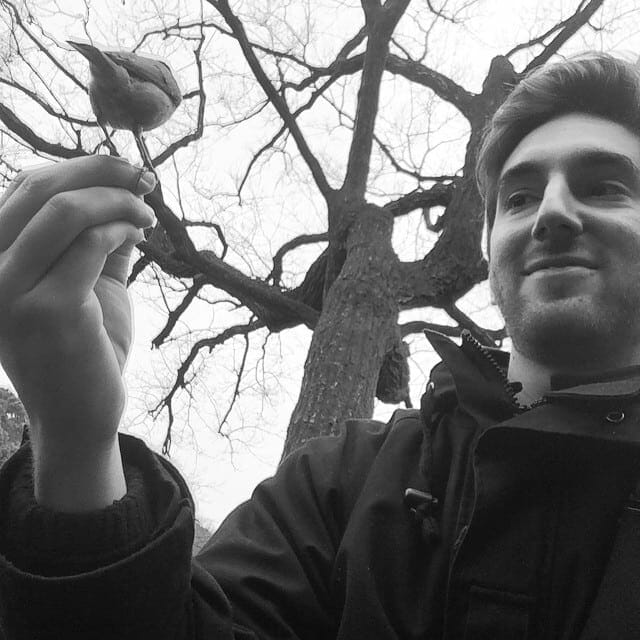Keeping the product simple and fun is essential. Consumers are much more likely to want a product that is intuitive and immediately easy to use rather than one that requires hours of use just to develop a familiarity with all of its functions.
As a software engineer at Snapchat, David Kravitz understands the value of establishing an optimal work environment that leverages the unique strengths of team members using the best available technology. In his role with the company, Mr. Kravitz is charged with creating tools specifically designed to enhance the productivity of engineers across a host of tasks. This includes the development of software that compiles, tests, reviews, and deploys code.
In addition to developing tools for optimizing productivity, Mr. Kravitz has also written client-side and server-side code for the main application. Building great software for great products is most important, and it is no stretch to say that his work represents a true passion that brings him a great deal of joy.
Before joining Snapchat, Mr. Kravitz studied computer science at Stanford University. A dedicated student, he served as a teaching assistant for both the introductory computer science course and the discrete mathematics course. This was a rewarding experience, as it enabled Mr. Kravitz to gain insight into the manner in which course structure is designed while also allowing him to assist both professor and student in achieving the desired learning outcomes. A resident of Venice, California, Mr. Kravitz uses his free time to write and perform comedy around Los Angeles.
What does your typical day look like and how do you make it productive?
While each day is different and poses new and unique challenges, I can be certain that on any given workday I will be writing code, answering emails, and interviewing engineers. Productivity has always been very important to me, so I take a few moments at the beginning of each day to structure my schedule in a way I feel ensures that a great deal is accomplished.
How do you bring ideas to life?
One of the benefits of attending Stanford was that it allowed me to recognize the value of working with groups of highly intelligent people. I try to always surround myself with people who are smarter than me and who are willing to offer alternatives to any ideas I present.
What’s one trend that really excites you?
The advent of self-driving cars is incredibly exciting. The roads and highways are unbelievably dangerous, and properly functioning self-driving automobiles could eliminate what is currently a major public-health hazard.
What is one habit of yours that makes you more productive as an entrepreneur?
I meditate every day. Taking a few moments to find balance and to develop a sense of centeredness and presence is entirely worthwhile.
If you were to start again, what would you do differently?
I would try to be more present. I found myself focusing on the ultimate outcome of the project rather than recognizing the importance of each individual moment along the way.
As an entrepreneur, what is the one thing you do over and over and recommend everyone else do?
It is too often the case that people agree to things out of a desire to be polite or to avoid hurting someone else’s feelings. I am completely unafraid to say no to things and to give a detailed explanation why. I’d recommend that other entrepreneurs do the same, and also to pick an idea they believe in and execute on it.
What is one strategy that has helped you grow your business?
Keeping the product simple and fun is essential. Consumers are much more likely to want a product that is intuitive and immediately easy to use rather than one that requires hours of use just to develop a familiarity with all of its functions.
What is one failure you had as an entrepreneur, and how did you overcome it?
I used to try to juggle too much at once. I now recognize that trying to be hyper-efficient through multitasking is only going to reduce productivity and lead to major setbacks. Now I pick one thing and focus on it.
What is one business idea that you’re willing to give away to our readers?
Figure out renewable energy. There has been a lot of resistance to this industry, but there is a big future in it for the entrepreneur who figures out how to bring affordable and convenient energy products to the market.
What is the best $100 you recently spent? What and why?
The best purchase I made recently was “Between the World and Me” by Ta-Nehisi Coates. Part history, part memoir, and expressed as a letter to Coates’s son, it is a deeply moving work about what it means to be black in America.
What software and web services do you use? What do you love about them?
There are three in particular that I feel are absolutely essential: f.lux, Dropbox, and followupthen.com. I use f.lux for adjusting my computer screen’s color and brightness to match the time of day, Dropbox for file syncing and sharing, and followupthen.com to easily schedule reminders to follow up with an email.
What is the one book that you recommend our community should read and why?
The writings of Chuang Tzu, an ancient — and mischievous — Chinese philosopher. He uses stories, parables, and paradoxes to express his ideas about life and death, happiness and freedom.
What people have influenced your thinking and might be of interest to others?
I am particularly fond of philosophy and would highly recommend reading Bryan Magee’s “Confessions of a Philosopher,” a delightful trek through the history of Western philosophy. There is no better introduction to the topic.
Mario Schulzke is the Founder of ideamensch, which he started a decade ago to learn from entrepreneurs and give them a platform for their ideas.

